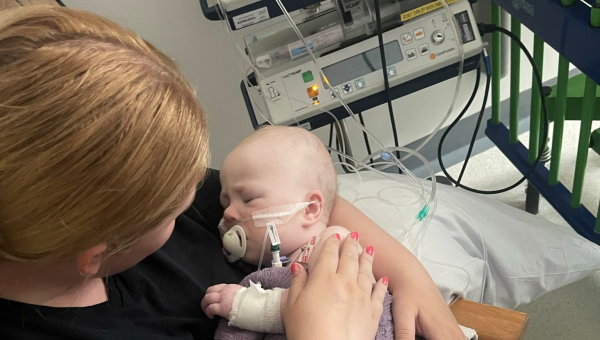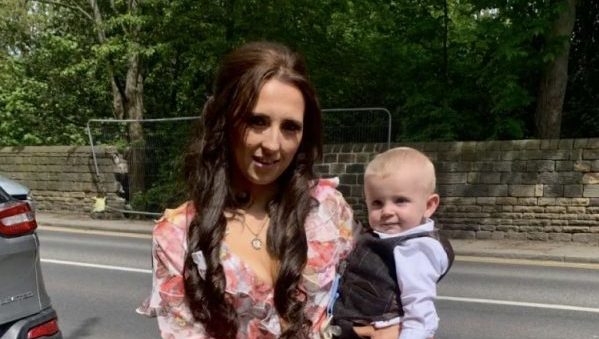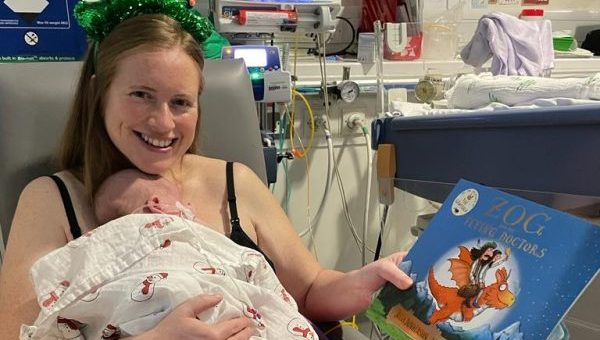The relief was instantaneous.
For six weeks I’d been driving between two and a half and four hours a day, after work, from home to Addenbrooke’s Hospital.
Not only was the drive exhausting, but the cost of fuel was rapidly becoming a problem.
When Acorn House, one of The Sick Children’s Trust ‘Home from Home’ houses at Addenbrooke’s Hospital, gave us the keys to one of their rooms, suddenly a huge amount of stress evaporated.
Our son Max was born with hydrocephalus.
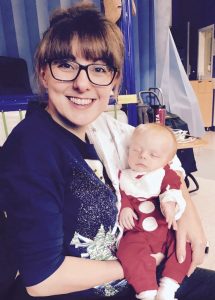
The condition means a build-up of CSF (cerebrospinal fluid) in the ventricles in the brain because it isn’t draining properly. It’s a condition that can be managed through a shunt, implanted in the brain that acts like a pressure valve, removing the fluid that can’t drain by itself. If left untreated, it can be fatal.
Hydrocephalus affects around 1 in 1,000 babies, but very few people have heard of the condition. At 37 weeks pregnant, when we first discovered Max had a severe version of hydrocephalus, we were among those people.
From that point, it became a non-stop whirlwind of hospitals and possibilities, ranging as far as a termination if there was no brain activity.
You can imagine our amazement and happiness when Max was born and, despite the potential prognosis, he was in our arms, alive and well.
After being in Peterborough Hospital for a week, we were immediately transferred to Addenbrooke’s, where the decision was made to put a shunt in immediately.
A week after the shunt had been fitted, we were on the way home, nervous, but happy to be heading home
“The very first night we stayed at Acorn House we went to the kitchen and cooked a proper meal. It was the first home cooked meal Holly had eaten in weeks.”
Unfortunately, within two weeks Max had an infection and was back in Addenbrooke’s having the shunt removed. Then the process of clearing the infection begins, which is six weeks of antibiotics while an external shunt is in place. Once the infection is cleared a new shunt can then be fitted.
By now Max and Holly had been living in the hospital for nearly two months, and there was still the possibility of being there for at least another month over Christmas.
That’s a lot of sandwiches, microwave meals and hospital showers.
The very first night we stayed at Acorn House we went to the kitchen and cooked a proper meal. It was the first home cooked meal Holly had eaten in weeks.
Holly then had a proper shower, with soft fluffy towels, again her first decent shower in weeks. Being able to dry yourself with a proper towel is a luxury that’s hard to put into words when you’ve not had it for a while.
She could get dressed, spend thirty minutes off the ward, but be able to get back in minutes if needed.
The small home comforts of a warm room, hot shower, fluffy towels, and working kitchen make a world of difference.
Acorn House gets food donations from other parents who’ve stayed there, particularly over Christmas, so if the families who are staying can’t get to the shops, there will be something for them to eat.
It allowed our whole family (Holly, I, our mums and my grandfather), to spend Max’s first Christmas in hospital with him. We cooked a full Christmas dinner in the Acorn House kitchen and took it over to the ward.
Our daughter Lyra, born last September, also suffers from hydrocephalus. She had similar issues to Max and had her last operation on Christmas morning.
Once again, The Sick Children’s Trust and Acorn House came to our rescue, providing us with a room, kitchen and support. We managed to cook a full Christmas dinner, for the second time, complete with all the trimmings.
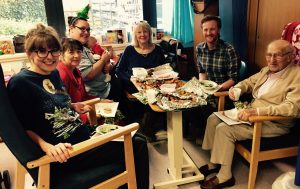
We’ve now been home for five weeks, but it’s very likely we’ll be back in hospital again in the future. Knowing that The Sick Children’s Trust is there to support us makes the whole ordeal bearable.
Michael Wilding, Max and Lyra’s dad
